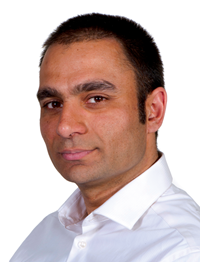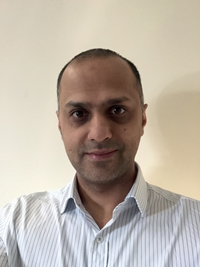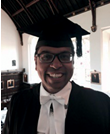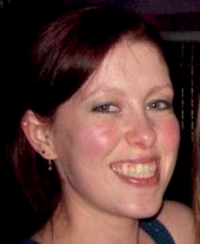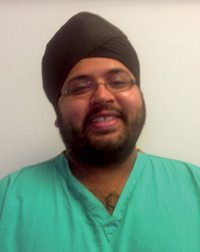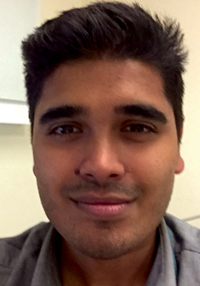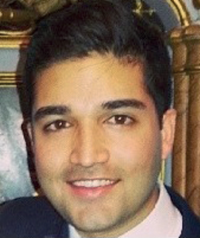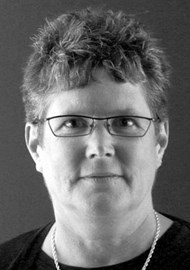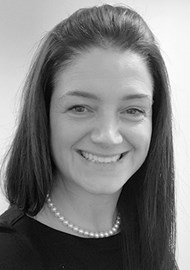In this Trainee Matters, we focus on ENT trainees with additional qualifications. Eight accomplished trainees tell Emma Stapleton how their achievements have benefitted them both professionally and personally. Their professional achievements have included a National Training Number in ENT, presentations, prizes, and the largest study of genetics of otitis media in the world. Just as importantly, trainees explain that the challenge of their experience has facilitated the development of numerous other skills, which will be valuable in their future lives and careers.
Mahmood Bhutta
PhD (DPhil), University of Oxford
My PhD was looking at genetic and molecular mechanisms underlying chronic otitis media. It was great to have time to think, and to adopt a scientific approach to disease. My project ended up being the largest study in ENT in the UK, recruiting from 35 centres, and the largest study of genetics of otitis media in the world. I have gained experience in scientific method, in molecular biology and project management. I have become a renowned expert in otitis media, both in the UK and internationally. I collaborate with researchers across the world, I regularly give invited talks at conferences, and am the Secretary-Elect of the International Society for Otitis Media. The experience has given a valuable and enjoyable additional realm to my career, as a scientist as well as a clinician.
Time: Three years
Personal costs: None
External funding: I was awarded a clinical research fellowship from the Wellcome Trust and from the Royal College of Surgeons, meaning I was funded for my salary, lab costs and all university fees.
Sirhan Alvi
Master of Research, University of Manchester
I undertook an MRes in Translational Medicine largely because I’d narrowly missed the chance of an ENT run through post the previous year. Due to the points system for the National Selection in ENT, further clinical experience would have resulted in point deductions whereas a formal postgraduate degree would further enhance my CV. The MRes takes one year and is a complete degree. I had to go through a formal interview process including a 20 minute PowerPoint presentation on my understanding of Translational Medicine, and a possible project that I may undertake. The course itself is split into four months of formal lecture based teaching, and eight months of laboratory based research. I had formal assessments throughout the taught modules, including medical statistics. The research part involves a literature review, research proposal, data collection, a 20,000 word dissertation and oral presentation. Was it worth it? Yes! I got to cut out mice cochleas and examine them under the microscope. I learned a lot of new skills in doing laboratory based research, and I got my national training number the following year.
Time: One year full-time
Personal costs: Tuition fees £6800
External funding: None.
“Patient recruitment and data collection
proved to be challenging but extremely rewarding.”
Sid Nagala, PhD, University of Cambridge
Sarah Healy
Masters in Medical Law, De Montfort University, Leicester
This course has been challenging and is a big financial and time commitment. I am currently two thirds of the way through the course, and it has been a steep learning curve! There is a choice of modules, which are clinically relevant, including Clinical Malpractice and Consent. I chose to do this course to improve my understanding of legal issues in medicine, and also to have the opportunity to do something different to my day job. The learning style and essay writing are a stark contrast to studying science or a medical degree. I have gained new skills in critical analysis, legal writing and researching information. More than this, however, this course has enabled me to take responsibility for my learning. It can be difficult at times to fit the work in around other commitments, which the tutors understand, and you are encouraged to be proactive in managing your studies such as asking for extensions when necessary and using your initiative to contact tutors. This course has helped me to develop as an individual, whilst gaining a great sense of achievement.
Time: Distance learning course over 2.25 years, with an initial induction weekend followed by five Saturday study days.
Personal costs: £8000
External funding: None.
Raguwinder (Bindy) Sahota
MD, University of Leicester / Garvan Institute of Medical Research, Sydney, Australia
I embarked upon research in the field of stem cell otology in 2010 in Australia. It was a significant contrast from clinical medicine, having never carried out any basic science work previously. After four months of research and due to changes of staff in the hearing research group there was a complete change in direction away from stem cell otology; as such I had to develop a new research project. This lead me to design a project in the field of otoprotection exploring the deleterious effects of free radicals in noise-induced hearing loss based on a murine model. Whilst this change was both scary and exciting, I am pleased with the outcome as this work has lead to publications, poster presentations, invitations to talk on the field of otoprotection including at the Royal Society for Medicine and winning prizes (ENT Masterclass Gold Medal 2013). Through completing this research I have gained lots of skills and have had a plethora of experiences that I wouldn’t have otherwise.
Time: 22 months out of time from training
Personal costs: University fees >£12,000
External funding: Funded by the Kennedy Foundation.
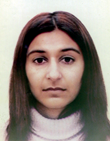
“I gained other ‘softer’ skills such as coping with setbacks, self-motivation, time management and adapting to a new environment.”
Shalini Patiar, DPhil, University of Oxford
Kiran Varadharajan
MCh in Otorhinolaryngology, Anglia Ruskin University
In July 2014 the programme director Professor Kanegaonkar developed a new MCh syllabus delivered full-time at Canterbury Christ Church University and includes practical sessions (cost of £13,120 / year with bursaries available). The MCh improved my evidence-based knowledge of ENT. I was required to undertake a research project that improved my research skills. Completing the MCh also enhanced my competitiveness for ENT national selection. Completing an MCh contributed roughly 5% of the total portfolio score in 2015. I was able to obtain an ENT training number at a location I was happy with.
Time: Three years (distance learning)
Personal costs: £2000-£3000 per year
External funding: None.
Rishi Mandavia
NICE Scholarship, London
This experience has enabled me to learn about the intricate workings of NICE. I have attended NICE Board and Committee meetings which have provided me with a detailed understanding of NHS Health Policy and a unique perspective when designing research projects. The workshops offered by NICE have improved my skills in both qualitative and quantitative research strategies whilst developing my critical appraisal skills. Moreover being a NICE Scholar has undoubtedly increased the gravitas of my current research project thereby increasing stakeholder buy-in. I have also been able to establish collaborations with likeminded NICE Scholars facilitating future research. Most importantly this experience has provided me with a future research direction which I am confident will be of value to myself and the NHS.
Time: One year
Personal costs: None
External funding: Funded by NICE.

